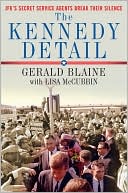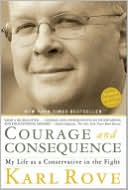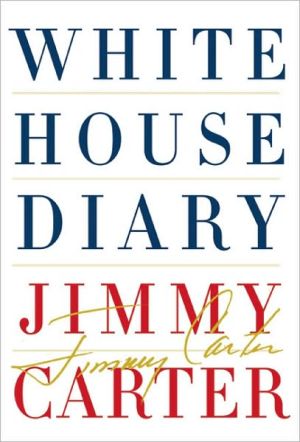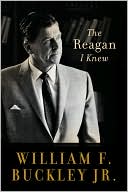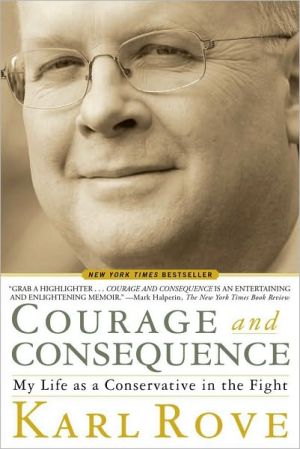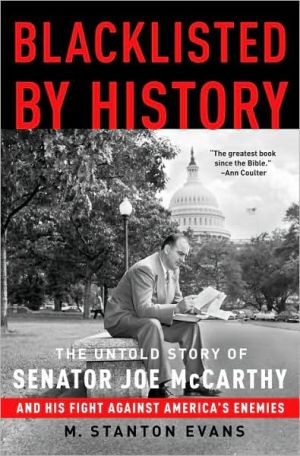Bomb Power: The Modern Presidency and the National Security State
A groundbreaking examination of how the atomic bomb profoundly altered the nature of American democracy.\ In Bomb Power, bestselling author Garry Wills presents a blistering critique of excessive executive power and official secrecy, drawing a direct line from the Manhattan Project to the usurpations of George W. Bush. He reveals how the atomic bomb transformed our nation down to its deepest constitutional roots-by dramatically increasing the power of the modern presidency and redefining the...
Search in google:
From Pulitzer Prize–winning historian Garry Wills comes this groundbreaking examination of how the atomic bomb profoundly altered the nature of American democracy and why we have been in a state of war alert ever since. Publishers Weekly Wills's stimulating study makes the case that since the emergence of the nuclear bomb, the U.S. has shifted toward an executive-dominated government, a move fully developed and rationalized during the cold war as a necessary expedient in decision making. Stephen Hoye keeps the material from getting bogged down and technical with his deep and genial voice and clear emphasis and rhythmic delivery. The occasionally dense prose and sophisticated arguments are surprisingly easy to follow given the inflective cues. However, Hoye's quoting voice lacks a distinguishing shift and can catch listeners by surprise. A Penguin Press hardcover (Reviews, Dec. 21). (Feb.)
Introduction War in Peace 1I The Making of Bomb Power1 Fatal Miracle 72 Atomic Politics 243 The Care and Keeping of the Bomb 41II The National Security State4 Beginnings (1945-1946) 575 Annus Mirabilis (1947) 706 Completing the Apparatus (1948-1952) 86III Presidential Wars7 Korea 1058 Permanent Emergency 120IV Information Power9 Secrecy as Embarrassment Cover 13710 Secrecy as Congress Deceiver 14811 Secrecy as Policy Disabler 16112 Secrecy as Crime Concealer 175V Executive Usurpations13 "War Powers" 18714 Challenging Secrecy 19715 The Unitary Executive 20916 American Monarch 222Afterword 237Notes 243Index 267
\ Publishers WeeklyThe demands of nuclear weapons policy have poisoned the American polity, according to this unfocused jeremiad. Historian Wills (Lincoln at Gettysburg) argues that the project of deploying and defending against nuclear weapons transformed America into a “national security state” mired in permanent semi-emergency, with swollen military forces, unaccountable spy agencies, a Byzantine apparatus of state secrecy, and an empire of overseas bases. Worse, he writes, the aura of “bomb power” that presidents gleaned from their prerogative to initiate nuclear holocaust made the presidency into an “American monarch[y]” that sneers at constitutional restraints. Wills's is a provocative and at times insightful analysis of how presidential status and mystique hypertrophied alongside the military-industrial complex. Unfortunately, it's a rickety framework for his scattershot account of foreign and security policy in the nuclear age, which meanders from the Manhattan Project to George Bush's “war on terror” to gay marriage. It's often hard to see the connections he insinuates between nuclear obsessions and misdeeds like the 1954 CIA-organized coup in Guatemala. Wills's conception of “bomb power” is a weak explanatory principle for this sketchy take on post-war American history. (Feb.)\ \ \ \ \ Vanity Fairpungent, confident, fluid, steeped in learning.\ \ \ Library JournalWills (history, emeritus, Northwestern Univ.; Lincoln at Gettysburg) expands upon an idea he raised ten years ago in A Necessary Evil, that the atomic bomb utterly changed the nature of our government. The "monopoly on use of nuclear weaponry" first given to President Truman in 1945 has since contributed to the growth of presidential power, enveloping too many acts in an extraconstitutional secrecy grown steadily more routine. Wills starts with the story of the bomb's development at Los Alamos and other sites and goes on to outline how, as the Cold War took shape between 1945 and 1952, a national security state was constructed out of components such as the National Security Council and the Central Intelligence Agency. The consequences and further causes of official "permanent war in peace" are examined here in episodes of entwined presidential secrecy and power ranging from the Korean War to the War on Terror. In an afterword already published in the New York Review of Books, Wills expresses doubts that the presidency of Barack Obama will be much different than those of his postwar predecessors. VERDICT The original premise is often lost here, but any tract from Wills will delight his readership. This book is among his most timely, if not among his best. [See Prepub Alert, LJ 9/15/09.]—Bob Nardini, Nashville\ \ \ \ \ Kirkus ReviewsPulitzer Prize winner Wills (What the Gospels Meant, 2008, etc.) traces a vast distortion of the Constitution and the origins of the national-security state to the product and process of the Manhattan Project. In 1942, Gen. Leslie Groves headed the atomic-bomb program, a mission so clandestine even Vice President Truman didn't know it existed. The atomic bomb was something altogether new. In the mix of unconstrained authority, hidden money and absolute secrecy that attended its creation, the author detects the blueprint for a redefined, outsized presidency and the institutions and policies of the national-security state. With the bomb central to the country's military policy, Wills argues, Americans have grown dangerously accustomed to lodging "the fate of the world" in one man's hands. This cedes to the president war-making power that properly belongs to Congress, foreclosing any debate over White House decision-making as enfeebling the president, "too dangerous" in a nuclear world. Accordingly, presidents from Truman to George W. Bush, without informing Congress or the American people, have used executive orders, the theory of the unitary executive and the vast national-security apparatus to concentrate their power. Relying on a series of seminal speeches, memos, articles and orders, Wills explains just how the instruments for permanent war in peace were assembled. He cites a number of national humiliations-the Bay of Pigs, the secret Cambodian bombing, the Pentagon Papers, Iran-Contra, etc.-to show that presidents, regardless of party, have been permitted too much unchecked authority, bomb power, handed them by Groves and the scientists at Los Alamos. With the cult of the Commander inChief has come the expansion of state secrets, making accountability doubly difficult. Elaborate classification and clearance systems, in place ostensibly for security reasons, have become instead a cover for government embarrassment, deception, even crime, and often cripple policy by keeping important information from knowledgeable critics. As usual with Wills, provocatively argued and elegantly written.\ \ \ \ \ Publishers WeeklyWills's stimulating study makes the case that since the emergence of the nuclear bomb, the U.S. has shifted toward an executive-dominated government, a move fully developed and rationalized during the cold war as a necessary expedient in decision making. Stephen Hoye keeps the material from getting bogged down and technical with his deep and genial voice and clear emphasis and rhythmic delivery. The occasionally dense prose and sophisticated arguments are surprisingly easy to follow given the inflective cues. However, Hoye's quoting voice lacks a distinguishing shift and can catch listeners by surprise. A Penguin Press hardcover (Reviews, Dec. 21). (Feb.)\ \ \ \ \ From the Publisher"Wills knows how to marshal his arguments...grounding them in the factual record." —-The Christian Science Monitor\ \ \ \ \ The Barnes & Noble ReviewThere's almost no historical figure or contemporary issue that Garry Wills won't tackle. He got on Nixon's enemies list for Nixon Agonistes. He took on two Popes (Pius IX and Pius XII). He's written about Jefferson and the Declaration (which won him a National Book Critics Circle Award) and Lincoln and Gettysburg (which won him a Pulitzer). He has written 40 books, including eight on presidents. After five recent books on aspects of "Christianities" he's back to writing about the post-WWII presidency. His argument is that the development of atomic weapons redefined the office as that of an all-powerful Commander-in-Chief who could no longer be checked, balanced, or held accountable by Congress and the courts. It is "a continuous story of unidirectional increases in the executive power" because "[e]xecutive power has basically been, since World War II, Bomb Power." The creation of the Bomb, done with secret funding, without statutory authorization, with almost everyone (including Vice President Truman) kept in the dark, morphed subsequently into a national security state that continues to operate without statutory authority and with secret funding, and that cuts out Congress, the courts (through the doctrine of State Secrets and Executive Privilege), and even top officials.\ All of this is unexceptional and has become the conventional wisdom of scholars of the field. What Wills brings to the table is his acute biographer's sense of smell: he can tell when reputations are inflated, when officials are lying and double-dealing, and when character flaws are decisive. In his brief summary of the development of the Bomb during the war, he providessuccinct summaries of Robert Oppenheimer and Leslie Groves, whose ability to work together canceled out their flaws. In vignettes Wills captures Truman's anger at the Japanese, Kermit Roosevelt's braggadocio about covert operations in Iran, and Adlai Stevenson's cluelessness about U.S. involvement in the Bay of Pigs. No one who reads this book will ever have the same high regard for George Kennan, whose reputation as a moderate at the start of the Cold War is shredded here.\ Wills demonstrates his skill at textual analysis with documents written by national security officials at the start of the Cold War. He tears apart the logic and conclusions of a board that stripped Oppenheimer of his security clearances. He dissects George Kennan's Long Telegram from Moscow, his State Department memo on containment, and his subsequent article, penned as "X" in Foreign Affairs, demonstrating that Kennan lacked clarity in defining "containment." He is equally effective in dealing with speeches: at one point he provides the reader with Truman's first draft of a speech condemning a railroad strike in the late 1940s, which had the following subtleties: "Let us give the country back to the people. Let's put transportation and production back to work, hang a few traitors, make our own country safe for democracy, tell the Russians where to get off and make the United Nations work." Wills then provides the revised version after Clark Clifford got hold of the draft, which called out two striking union leaders as follows: " . . . It is inconceivable that in our democracy any two men should be placed in a position where they can completely stifle our economy and ultimately destroy our country." It demonstrates that White House counsels sometimes have their uses.\ In spite of its virtues, however, Bomb Power is a very problematic effort, plagued with errors of fact and logic. Lyndon Johnson did not receive authorization from Congress to conduct hostilities through passage of the Gulf of Tonkin Resolution. The Resolution provides that Congress "supports the determination of the president as commander in chief" to protect U.S. service personnel, and authorizes nothing. Wills makes much of the fact that the CIA did not brief "intelligence committees" of Congress in the 1950s and 1960s and that it did not provide "Findings" about its operations, claiming this was required under the National Security Act of 1947. But Wills must have looked at the current version of the act (with its many amendments): the intelligence committees were not created until 1975 (as select committees) and 1977 (as permanent select committees). "Findings" by the President were not required until 1974 in section 662 of the Hughes-Ryan Act. Wills also faults the CIA for not keeping the committees "fully and currently informed" of their operations: this language appeared for the first time in 1980 in the Intelligence Oversight Act.\ And there are more errors. The UN charter does not have a provision dealing with Congressional approval of peacekeeping operations by US forces; it does refer to military arrangements, which Congress specified must meet with its approval in the UN Participation Act it passed as a condition of joining the world body. Fred Vinson was "Chief Justice of the United States" and not, as Wills has it, "Chief Justice of the Supreme Court," a title that does not exist anywhere in the Constitution. The War Powers Resolution does not provide the president with a sixty-day period to conduct military operations that ends unless Congress gives him a thirty-day extension. The Resolution gives the President sixty days, which can be cut short by a congressional resolution opposing hostilities, and which ends unless Congress within the sixty days passes a declaration of war, a specific authorization, or extends the time period. The thirty days that Wills refers to is the time granted to complete a withdrawal at any time Congress designates an end to hostilities (or at the end of the initial sixty-day period if Congress has not acted). It is not true that "laws will not go into effect until signed by the President," because until signed they are bills and not laws, and in any event, a bill may become a law without presidential signature, provided the president doesn't exercise the veto and Congress has remained in session.\ There are incomplete narratives, whose completion would contradict Wills' thesis of an all-powerful president. Wills claims that Nixon ignored Congress when it cut off funding for hostilities in Cambodia. Yet Congress passed a bombing cutoff that went into effect on August 15, 1973; Nixon signed the bill (because it was a Defense Appropriation) and abided by it. While Wills recounts the failure of the Pike Committee to conduct a thorough investigation, he doesn't emphasize the results of the investigations conducted by the Church Committee, whose work led to framework legislation that (had presidents been cooperative) would have clipped the wings of CIA operatives. There are discussions of war powers that feature Bush 41 and 43, but conveniently omitted is Bill Clinton's extension of presidential war powers and evasion of provisions of the War Powers Resolution during the bombing of Serbia.\ Wills also gets the logic of political decision-making wrong. He claims that Truman "had" to use the Bomb in World War II, and presidents would have to use it thereafter. But what then do we make of Korea, Formosa and Vietnam? In each case presidents faced a decision about the use of nuclear weapons: in each they held back (though in both Korea and Formosa there were threats communicated to the other sides). Much of what Wills ascribes to Bomb power can be traced back before the atomic bomb. The domestic mobilization based on national security considerations that Wills finds excessive occurred in World War I with congressional passage of War Powers Acts that gave the government a great deal of control over markets, converting them into a command economy. FDR's Destroyer Deal is a perfect example of presidential prerogative being justified by the exigencies of an international crisis, but, alas for Wills's argument, the events occurred in 1940, before the Manhattan Project got underway. Wills is also unsubtle when he claims there has been an uninterrupted rise in presidential power: how do we explain the near paralysis of the Nixon presidency post-Watergate, and the Reagan presidency post-Iran-Contra, if we assume that the president is never checked and balanced, or officials in his administration never held accountable?\ In the final analysis, a book that engages in cum hoc, ergo propter hoc reasoning cannot persuade because the logical fallacy of claiming that because two things occur at the same time, the one must be the cause of the other, will not hold up against the history it presumes to clarify. This is so no matter how erudite the author and how penetrating the analysis of character and text. --Richard Pious\ Richard Pious is Adolph and Effie Ochs Professor at Barnard College and the Graduate School of Arts and Sciences, Columbia University. He teaches a course in Barnard's Science and Society Program on Nuclear Politics. He is the author of The President, Congress and the Constitution (1984), The War on Terrorism and the Rule of Law (2006), and Why Presidents Fail (2008).\ \ \

